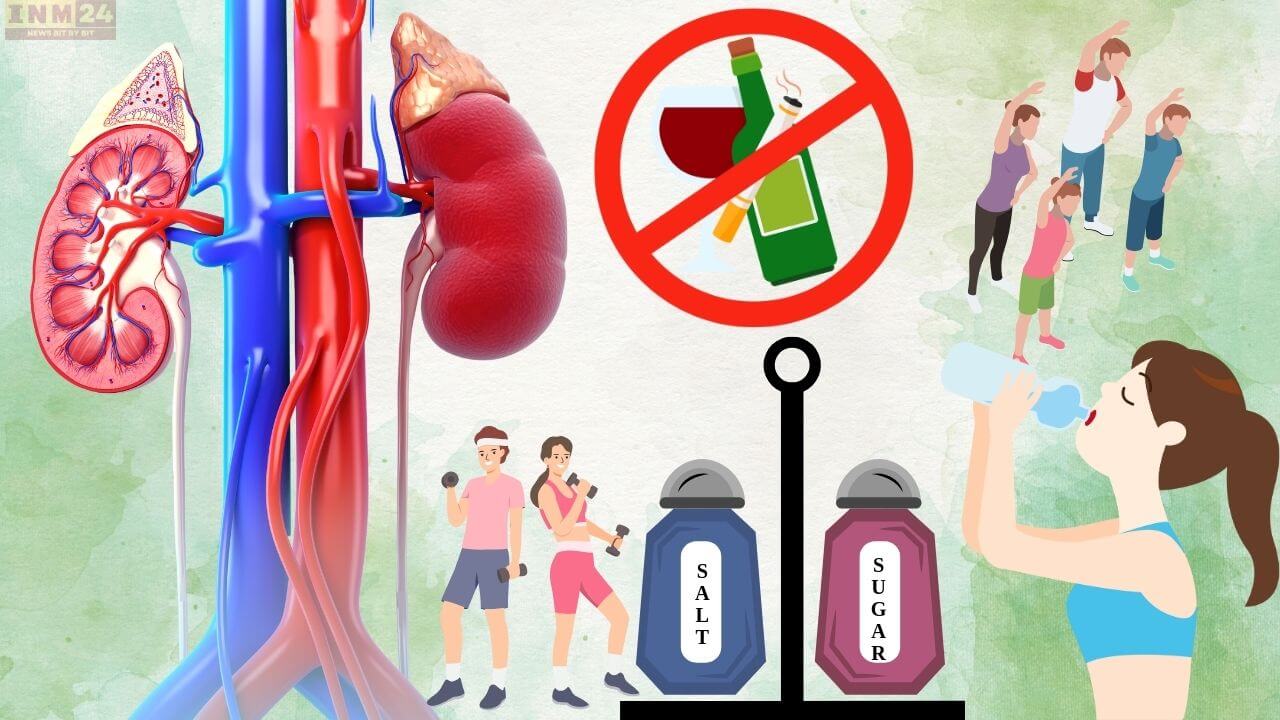How to prevent kidney failure: Remember, the kidneys are responsible for filtering waste and toxins from your body. If they malfunction, it can become a breeding ground for diseases. Here are some mistakes that could damage your kidneys.
On World Kidney Day, learn about the 6 main causes of kidney failure and kidney stones.
The human body has two bean-shaped kidneys. Each kidney is roughly the size of a fist. The kidneys play a crucial role in the body by filtering out excess water and waste products from the blood, maintaining the balance of fluids in the body, producing red blood cells, and regulating blood pressure.
Understanding Kidney Disease
Kidney disease occurs when the kidneys fail to properly filter blood or remove waste from the body, leading to a buildup of toxins. Every year, World Kidney Day is observed on the second Thursday of March to raise awareness about kidney-related diseases and prevention measures.
In this article, we’ll discuss what kidney disease is, the main causes of kidney disease, and how to prevent kidney-related issues.
Surprising Facts
Often when we talk about kidney-related diseases, we mention kidney stones, kidney failure, kidney cancer, chronic kidney disease (CKD), and so on. However, did you know that according to a report, there are potentially 395 different types of diseases that can affect the kidneys and urinary tract combined? What’s surprising is that most of these problems are linked to your dietary and lifestyle habits.
Symptoms of Kidney Disease
Here are six common mistakes to avoid that could lead to kidney damage:
Not Drinking Enough Water
Adequate hydration is crucial for proper kidney function. Drinking water helps to thin out waste products and aids in their elimination through urine. If you don’t drink enough water, your kidneys have to work harder to filter waste, potentially weakening their filtration ability. Therefore, it’s essential to drink an adequate amount of water throughout the day to keep your kidneys healthy.
Consuming Excessive Salt
Consuming too much salt can raise blood pressure, which is a major cause of kidney disease. While the kidneys regulate sodium levels in the body, excessive salt intake can burden the kidneys, potentially leading to long-term kidney damage. To keep your kidneys healthy, avoid packaged and processed foods that are typically high in salt. Additionally, use less salt while cooking and at the table.
Poor Blood Sugar Control
Diabetes, especially type 2 diabetes, is a significant risk factor for kidney disease. High blood sugar levels can gradually damage blood vessels and nephrons (the filtering units of the kidneys), leading to kidney impairment. Diabetics should focus on medication adherence, dietary control, regular exercise, and frequent check-ups to maintain stable blood sugar levels. This can help prevent diabetic nephropathy (kidney damage due to diabetes) and related complications.
Smoking
Cigarette smoke contains various toxins and carcinogens that can harm the kidneys. Smoking not only increases the risk of kidney cancer but can also exacerbate chronic kidney disease (CKD). Nicotine and other harmful chemicals in cigarettes constrict blood vessels, reducing blood flow to the kidneys and affecting their function. Quitting smoking is essential for maintaining kidney health and reducing the risk of kidney-related diseases.
Alcohol Consumption
Excessive alcohol consumption can damage not only the kidneys but also the overall health of the body. Alcohol acts as a diuretic, increasing urine production and potentially causing dehydration. Prolonged excessive alcohol intake can indirectly affect the kidneys by disrupting fluid balance. Therefore, it’s crucial to limit alcohol intake to recommended levels and not exceed the doctor’s recommended amount for maintaining kidney health.
Lack of Exercise
Physical inactivity contributes to obesity, high blood pressure, and insulin resistance, all of which can increase the risk of kidney-related problems. Regular exercise promotes heart health, weight control, and stable blood sugar levels, reducing the risk of kidney diseases. Engaging in aerobic activities like brisk walking, jogging, cycling, or swimming for at least 150 minutes per week can improve overall health and lower the risk of kidney diseases.
Taking care of your kidneys is essential for overall health and well-being. By avoiding these common mistakes and adopting a healthy lifestyle, you can protect your kidneys from damage and reduce the risk of kidney-related diseases. Stay hydrated, eat a balanced diet, exercise regularly, and avoid harmful habits like smoking and excessive alcohol consumption to keep your kidneys healthy for years to come.
